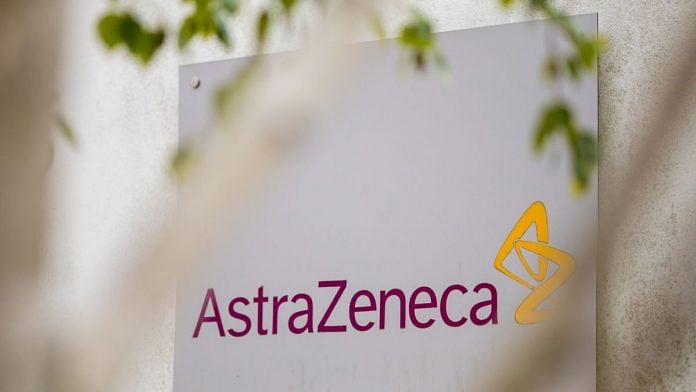New Delhi: An antibody cocktail developed by AstraZeneca, Evusheld, received emergency use authorisation in the US Thursday, as a preventive drug for Covid-19 in people who are immunocompromised.
The company now intends to submit application in India for approval, with a hope that addition of this monoclonal antibody cocktail will provide adequate ammunition in the fight against Covid, especially for high-risk, vulnerable and immunocompromised patients.
“Evusheld neutralises all previous SARs-CoV-2 variants to date, and we are working quickly to establish its efficacy against the new Omicron variant,” Mene Pangalos, executive vice-president, BioPharmaceuticals R&D, AstraZeneca, said in a statement Thursday.
It is a combination of two monoclonal antibodies, tixagevimab and cilgavimab, and is currently the only antibody therapy authorised in the US as Covid-19 pre-exposure prophylaxis (a drug given to prevent infection). The antibody is delivered as an intramuscular injection dose.
According to AstraZeneca, about 2 per cent of the global population is considered at increased risk of an inadequate response to a Covid-19 vaccine. This includes people with blood cancers or other cancers being treated with chemotherapy, those taking medications after an organ transplant, and those who are taking immunosuppressive drugs for conditions including multiple sclerosis and rheumatoid arthritis.
Such people will be benefitted by Evusheld, according to the company.
Also read: Omicron unlikely to completely evade antibodies, US study using AI tool suggests
What are monoclonal antibodies?
In a healthy body, the immune system is able to create antibodies — tiny Y-shaped proteins present in the blood that recognise microbial enemies and bind to them, signalling the immune system to then launch an attack on the pathogen.
However, for people whose immune systems are unable to make sufficient amounts of these antibodies, scientists provide a helping hand.
Monoclonal antibodies are artificially created antibodies that aim to aid the body’s natural immune system. They target a specific antigen — a protein from the pathogen that induces immune response.
Monoclonal antibodies can be created in the lab by exposing white blood cells to a particular antigen. In the case of Covid-19, scientists usually work with the spike protein of the SARS-CoV-2 virus, the protruding part of the coronavirus that facilitates the entry of the virus into the host cell.
To increase the quantity of antibodies produced, a single white blood cell is cloned, which in turn is used to create identical copies of the antibodies. Various monoclonal antibody therapies have been developed worldwide.
Also read: Prioritise 1st & 2nd vaccine dose, but those with low immunity need booster: US epidemiologist
Data from PROVENT trial
Evusheld has been approved as a pre-exposure prophylaxis of Covid-19 in people over 12 years of age. To be eligible for Evusheld use, the person has to also weigh 40kg or more and be suffering from moderate to severe immune compromise, due to a medical condition or the use of immunosuppressive medications. This is because such people may not be able to mount an adequate immune response to Covid-19 vaccination.
The drug can aslo be used in people for whom Covid-19 vaccination is not recommended such as very young children or people with a history of severe reaction to vaccines.
The data supporting the Evusheld emergency use authorisation are from the ongoing Phase 3 pre-exposure prevention trial, known as PROVENT, which showed at least 77 per cent reduction in the risk of developing symptomatic Covid-19 in those who used Evusheld. The 77 per cent reduction in risk was for at least six months, after which the risk reduced by 83 per cent.
More follow-up research is needed to establish the full duration of protection provided by Evusheld.
“Millions of people in the US and around the world remain at serious risk for Covid-19 because their immune systems do not generate a sufficient immune response, even after receiving all recommended doses of vaccine,” Myron J. Levin, Professor at University of Colorado and principal investigator on the PROVENT trial, said in a statement Thursday.
(Edited by Poulomi Banerjee)
Also read: Mystery of how Karnataka doctor got Omicron unsolved, but community transmission ‘improbable’



